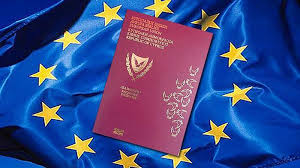Offering citizenship as a form of atonement is common. Austria, which normally restricts dual nationality, now allows descendants of Jews who were expelled, or fled, during the 1930s and 1940s to claim a passport. A similar right can be found in Germany, where it is embedded in the country’s constitution. Spain goes back even further, allowing descendants of Sephardic Jews kicked out in the 15th century to reclaim Spanish citizenship. (Descendants of Muslims kicked out in the same period have no such luck.)
將提供公民身份作為一種贖罪方式是很常見的。奧地利通常限制雙重國籍,現(xiàn)在允許20世紀(jì)30年代至40年代被驅(qū)逐或逃亡的猶太人的后代申領(lǐng)護(hù)照。在德國也能發(fā)現(xiàn)類似的權(quán)利,這一權(quán)利被載入德國憲法中。西班牙甚至可以追溯回更遠(yuǎn)的過去,他們允許15世紀(jì)被驅(qū)逐的西班牙猶太人的后裔重新獲得西班牙國籍。
A few countries take the opposite path and hoard their passports. Along with Austria, the Netherlands and Germany both have strict rules on dual-nationals from outside the EU. In the days when citizens were regularly conscripted to butcher their neighbours, restrictions on dual citizenship made sense. Now they seem outdated, serving only to leave immigrants—who may not want to give up their other nationality—as perpetual outsiders.
一些國家則背道而馳,他們嚴(yán)格控制護(hù)照。與奧地利一樣,荷蘭和德國對來自歐盟以外的雙重國籍都有嚴(yán)格的規(guī)定。在公民經(jīng)常被征召去屠殺鄰邦人民的時(shí)代,對雙重國籍的限制是合理的。但現(xiàn)在這樣的限制似乎已經(jīng)過時(shí)了,只會(huì)讓那些不想放棄其他國籍的移民成為永久的外來者。

If passports can be seen either as a commodity or political tool, on the one hand, or a life-long civic commitment on the other, devising common rules for handing them out is close to impossible. Although member states are happy to slam Malta and Cyprus, they do not appreciate criticism of how they themselves distribute citizenship. Some may balk at the idea of limiting dual nationality. Others may be uncomfortable with the unknown size of the Irish and Italian diasporas who could turn up as EU citizens. How countries seek to atone for the Holocaust is a deeply inappropriate question for an EU ruling. A clear definition of who qualifies for an EU passport is the obvious next step for any passport-selling ban; it is also a nightmare.
如果護(hù)照既可以被視為一種商品或政治工具,另一方面又可以被視為一種終生的公民承諾,那么幾乎不可能制定出簽發(fā)護(hù)照的共同規(guī)則。盡管歐盟各成員國樂于抨擊馬耳他和塞浦路斯,但它們并不樂于接受對自己分配公民身份方式的批評。有些國家可能會(huì)對限制雙重國籍的想法猶豫不決。其他國家可能會(huì)對愛爾蘭和意大利散居海外,并可能成為歐盟公民的人數(shù)不詳而感到不安。由歐盟裁決各國尋求贖罪的方式也是非常不適宜的問題。明確界定誰有資格申請歐盟護(hù)照,顯然是任何護(hù)照銷售禁令的下一步;這也會(huì)是一場噩夢。
An Al Capone approach may be enough for the EU to crack down on the current schemes operated by Malta and Cyprus. Rather than stop them from selling passports outright, Brussels could pursue them via money-laundering legislation and make life difficult for the dodgier newcomers. But a determined state—and some canny lawyers—could keep the golden passport trade going. Granting citizenship is a huge power and member states are unlikely to give it up. That means they will probably have to tolerate their neighbours selling passports to plutocrats.
對于歐盟來說,阿爾·卡彭式的方法足以用來打擊馬耳他和塞浦路斯實(shí)施的現(xiàn)行計(jì)劃。與其直接阻止這兩個(gè)國家出售護(hù)照,布魯塞爾不如通過反洗錢立法對它們進(jìn)行追查,讓可疑的新來者生活更加艱難。但一個(gè)堅(jiān)定的國家和一些精明的律師可以讓黃金護(hù)照交易繼續(xù)下去。授予公民身份是一項(xiàng)巨大的權(quán)力,成員國不太可能放棄這項(xiàng)權(quán)力。這意味著他們可能不得不容忍鄰國向富豪出售護(hù)照。
譯文由可可原創(chuàng),僅供學(xué)習(xí)交流使用,未經(jīng)許可請勿轉(zhuǎn)載。












